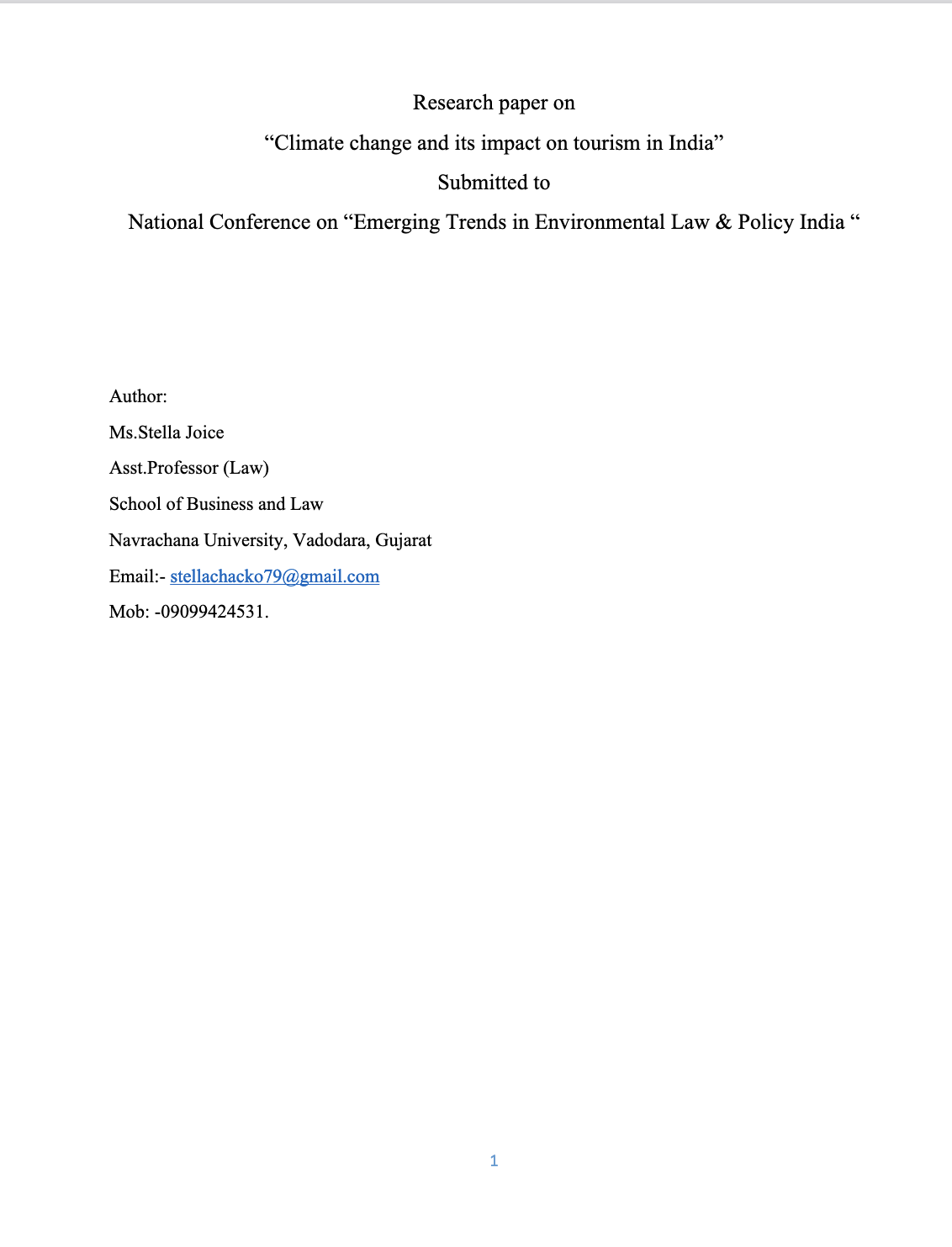Climate Change and its Impact on Tourism in India
Tourism is both vulnerable to climate change while at the same time contributing to it including direct and indirect impacts such as more extreme weather events, increasing safety concerns, water shortages, biodiversity loss and damage to attractions at destinations, among others. Continued climate degradation and disruption to cultural and natural heritage negatively affect the tourism sector resulting in the reduction of the attractiveness of destinations and lessen economic opportunities at the national and the international level.
While on the other hand, tourism is also contributing to climate change. The unprecedented levels in greenhouse gases has shown impact related to tourism by the emissions around 5%. The Paris Agreement has generated a new platform and there are all forms of efforts at all levels to find solutions to mitigate impacts and adapt to changing environmental conditions, as well as to vigilantly report on activities and impacts. The tourism sector continues to be more evident on essential climate-related information that is needed for better decision making.
The main aim of the Paris Agreement is to keep long-term global warming well below 2°C and the agreement requires all Parties to materialize their efforts through “nationally determined contributions” (NDCs) and to strengthen these efforts in the years ahead.
According to UN Tourism in 2016 approximately 40% of the NDCs acknowledge tourism either as a country priority or as a sector vulnerable to climate change. The international sphere of tourism also provides opportunities for increased efficiency and acceleration of climate action. However, as it was concluded during the discussions held at the 2016 International Symposium of the 10YFP Sustainable Tourism Programme at the United Nations Framework Convention on Climate Change's 22nd Conference of the Parties in Marrakech, the lack of a sectoral perspective does not allow creating links between the contribution of tourism industries to the NDCs and the efforts being undertaken by tourism stakeholders operating internationally.
